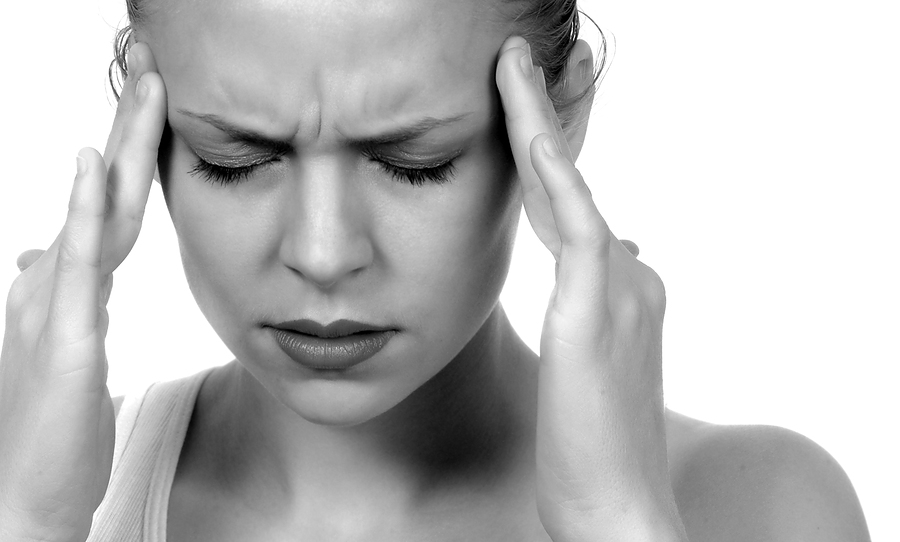|
Migrane
 Most
migraines sufferers can manage mild-to-moderate attacks at home with the
following strategies: Most
migraines sufferers can manage mild-to-moderate attacks at home with the
following strategies:
Using a cold compress to the area of pain
Resting with pillows comfortably
supporting the head or neck
Resting in a dark, quiet room with no
strong smells
Withdrawing from stressful surroundings
Sleeping
Drinking a moderate amount of caffeine
Trying certain over-the-counter headache
medications
- Non-steroidal
anti-inflammatory drugs (NSAIDS): These include medications like aspirin,
ibuprofen (Motrin, Advil), naproxen (Naprosyn, Aleve), and ketoprofen (Orudis).
Stomach ulcers and bleeding are serious potential side effects. This type of
medication should not be taken by anyone with a history of stomach bleeding.
- Acetaminophen
(Tylenol): Acetaminophen may be safely taken with NSAIDs for an additive
effect. Taking acetaminophen by itself is usually safe, even with a history
of stomach ulcers or bleeding. Acetaminophen should not be taken if the
migraine sufferer has liver problems or has 3 or more alcohol drinks a day.
- Combination
medications: Some over-the-counter pain relievers have been approved for use
with migraine. These include Excedrin Migraine, which contains acetaminophen
and aspirin combined with caffeine. A similar effect can be achieved by
taking 2 aspirin or acetaminophen tablets with a cup of black coffee.
Medical Treatment
Despite medical advances, migraines can be
difficult to treat. About half of migraine suffers stop seeking medical care
for their headaches because they are dissatisfied with therapy.
Migraines can be treated with 2
approaches: abortive and preventive.
-
Abortive: The goal of abortive therapy is
to prevent a migraine attack or to stop it once it starts. The prescribed
medications stop a headache during its prodrome stage (during the aura) or
once it has begun and may be taken as needed. Some can be administered as a
self-injection into the thigh; others, as a wafer that melts on the tongue.
These forms of medication are especially useful for people who have nausea and
vomiting during a migraine, and they work quickly.
Abortive treatment medications include the triptans, a group of drugs that
specifically target the brain chemical serotonin. They are all very similar
in their action and chemical structure. The triptans are used only to treat
headache pain and do not relieve other forms of pain.
- Sumatriptan (Imitrex)
- Zolmitriptan (Zomig)
- Eletriptan (Relpax)
- Naratriptan (Amerge,
Naramig)
- Rizatriptan (Maxalt)
- Frovatriptan (Frova)
- Almotriptan (Axert)
The following drugs also affect serotonin,
but they affect other brain chemicals also. Occasionally, one of these drugs
works when a triptan does not.
- Ergotamine tartrate
(Cafergot)
- Dihydroergotamine (D.H.E.
45 Injection, Migranal Nasal Spray)
- Acetaminophen-isometheptene-dichloralphenazone
(Midrin)
The following drugs are mainly used for
nausea, but they sometimes have an abortive or preventive effect on headaches:
- Prochlorperazine (Compazine)
- Promethazine (Phenergan)
The next drugs are weak narcotic drugs. They
are not specific for migraine, but they can help relieve almost any kind of
pain. Since they are habit forming, they are less desirable than the specific
headache drugs listed above. These drugs should be used primarily as a "backup"
for the occasions when a specific drug does not work.
- Butalbital compound
(Fioricet, Fiorinal)
- Acetaminophen and
codeine (Tylenol With codeine)
-
Preventive: This type of treatment is
considered if a migraine sufferer has more than 1 migraine per week. The goal
is to lessen the frequency and severity of the migraine attacks. Medication
to prevent a migraine can be taken daily. Preventive treatment medications
include the following:
- Medications used to
treat high blood pressure - beta-blockers (propranolol [Inderal]),
calcium-channel blockers (verapamil [Covera])
- Antidepressants -
Amitriptyline (Elavil), nortriptyline (Pamelor)
- Antiseizure
medications - Gabapentin (Neurontin), valproic acid (Depakote), topiramate (Topamax)
- Some antihistamines
and anti-allergy drugs, including diphenhydramine (Benadryl) and
cyproheptadine (Periactin)
Many foods may trigger migraines and
avoiding your food triggers may greatly lessen how often you suffer with a
migraine. Chocolate is the most common trigger for migraines. Suddenly
decreasing the amount of caffeine in your diet can also bring on a migraines.
Alcohol, cheeses, citrus fruit, and hot dogs may all trigger migraines in a
person sensitive to them.
-
First Aid Case List -
back to top - |
 Most
migraines sufferers can manage mild-to-moderate attacks at home with the
following strategies:
Most
migraines sufferers can manage mild-to-moderate attacks at home with the
following strategies: